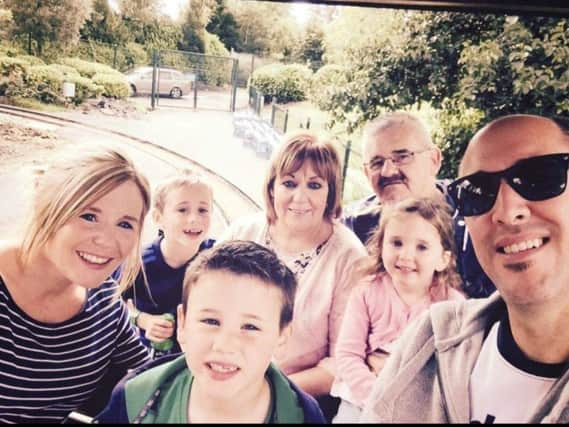Local woman campaigned for guideline change


Antoinette Barbee campaigned for new guidelines to be introduced after she lost her mother, Margaret Molloy, to Leiomyosarcoma in 2016.
Margaret had originally been diagnosed with a fibroid and underwent a vaginal hysterectomy.
Advertisement
Hide AdAdvertisement
Hide Ad“Mammy was in perfect health and the first thing she complained about post-menopausal bleeding,” Antoinette explained. “She hadn’t been to the doctor in years and had never been sick before so I had to put the fear into her to get her to go and get checked.
“I’m a midwife and I knew that post-menopausal bleeding was a symptom of cancer. She was referred to gynaecology and was told it was only a fibroid, that is was nothing to worry about. We thought that was just brilliant.”
However, the family were unaware no pre-operative test can differentiate between a fibroid and sarcoma.
“A month after the surgery Mammy was told it was sarcoma. She was sent for a number of scans which all came back clear and we thought this was a lucky escape.”
Advertisement
Hide AdAdvertisement
Hide AdAfter a further check up a couple of months later, the family received the devastating news that Margaret now had three tumours in her abdomen and she was offered palliative care.
“It was so hard to believe because she looked so well. I started looking into it a bit more and began asking questions about why the cancer came back so quickly,” Antoinette said. “I also joined a number of online forums where people there were talking about morcellation and how it can increase recurrence risk and I started to wonder if that had happened to Mammy.”
After receiving her mother’s medical notes, Antoinette discovered that her womb had been removed in fragmented pieces.
“For the general population, the risk of fibroid being a sarcoma is 1 in 400, but as women age and approach menopause that risk increases to 1 in 66. We went to the Royal College of Gynaecologists (RCOG) to get an independent review of Mammy’s case because I wanted to make sure what happened to Mammy didn’t happen to anyone else.
Advertisement
Hide AdAdvertisement
Hide Ad“They agreed that women need to be given informed consent about the potential risks of sarcoma and that no pre-operative test can differentiate between this type of cancer and fibroids and told the consequences of morcellation (not removing the tumour whole).”
Antoinette said that while the last three years have been extremely difficult and at one stage she felt like giving up, she is delighted the guidelines have been changed.
“This was a promise I made to my Mammy and I think she would be very proud. I only set out to change things locally, I never set out to change things for the whole UK.
“If I had known that no test can tell the difference between a fibroid and a uterine sarcoma we would have made different choices and Mammy still could have been here. I feel like a weight has been lifted, because other women will be able to make an informed choice.”